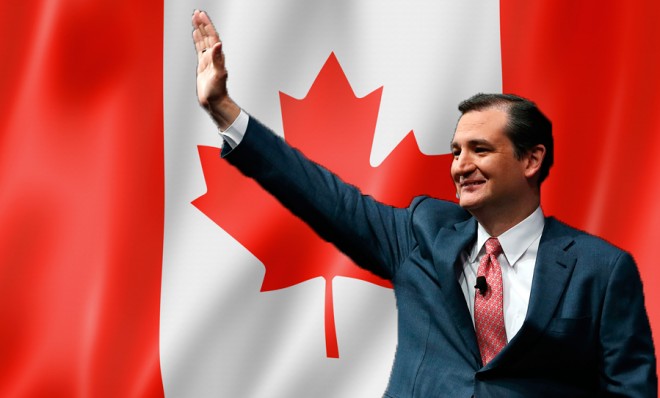Ted Cruz can officially run for Canadian Parliament
Ted Cruz, Conservative MP? It could happen, according to the Texas senator's recently released birth certificate.

A free daily email with the biggest news stories of the day – and the best features from TheWeek.com
You are now subscribed
Your newsletter sign-up was successful
Like President Barack Obama before him, Sen. Ted Cruz (R-Texas) has released a copy of his birth certificate to the press, proving that he is, in fact, a citizen of the United States. The document, given to The Dallas Morning News, shows that Cruz, whose father is of Cuban heritage, was born in 1970 in Calgary, Alberta, to an American mother.
That makes him an American citizen at birth, meaning that he is eligible to run for president of the United States, according to a scholarly investigation by the Congressional Research Service. (Technically, someone could challenge his candidacy in court.) Indeed, Cruz's decision to release the certificate is the latest evidence that he is mulling a run in 2016.
But he also has a potential back-up plan if a presidential bid goes sour: The Canadian Parliament.
The Week
Escape your echo chamber. Get the facts behind the news, plus analysis from multiple perspectives.

Sign up for The Week's Free Newsletters
From our morning news briefing to a weekly Good News Newsletter, get the best of The Week delivered directly to your inbox.
From our morning news briefing to a weekly Good News Newsletter, get the best of The Week delivered directly to your inbox.
Yes, he could take his brand of fiery conservatism north of the border thanks to the fact that he is also, technically, a Canadian citizen. While Cruz spokesman Catherine Frazier might disagree, telling the press that "he never had Canadian citizenship, so there is nothing to renounce," multiple legal experts told the Dallas Morning News that the senator is Canadian whether he likes it or not, thanks to the country's Citizenship Act of 1947.
"If a child was born in the territory, he is Canadian, period," France Houle, a law professor at the University of Montreal, told the Dallas Morning News. "He can ask for a passport. He can vote."
There is also nothing barring him from running for office in Canada, although his dual-citizenship could also cause him political problems there. Just ask Liberal Party leader Stéphane Dion, who in 2006 promised concerned voters that he would give up his French citizenship if he were voted prime minister.
It doesn't matter that Cruz left Canada as a four-year-old. He is still a Canadian citizen until he formally renounces his citizenship, which requires the relatively painless steps of filling out a four-page form and paying $100.
A free daily email with the biggest news stories of the day – and the best features from TheWeek.com
Most dual-citizens in similar situations don't bother to renounce their citizenship because, unlike in the United States, Canadian citizens aren't taxed for income they make outside the country. Cruz, however, might want to reconsider, if only to stop the taunts of "Canadian Ted" coming from his political opponents.
Keith Wagstaff is a staff writer at TheWeek.com covering politics and current events. He has previously written for such publications as TIME, Details, VICE, and the Village Voice.